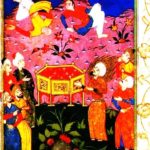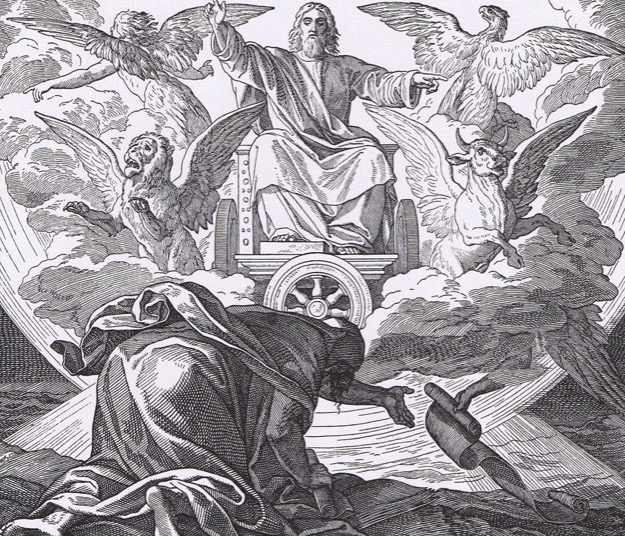This is another early surah–again, it has all the marks of this period, being a surah that largely rehashes familiar ideas in generally the same terms.
The first four were probably revealed secondly from the last four, but there’s so little to explore here that there’s no reason to separate them.
- Hoarding up diverts you
- Until you visit* the graves,
- Nay! Soon you shall know.
- Again, nay! Soon you shall know.
- Nay! If you know [with] a knowledge (of) certainty!
- Surely you shall see the Hellfire.
- Again, surely you shall see it [with the] eye (of) certainty!
- Then that Day surely you shall be questioned about delight!
Ayah 1 is usually mistranslated based on interpretations in the tasfir. There’s no actual justification for butchering the translation because of that. The root of this word means profit/increase/gain, so the verb of hoarding up contains the meaning of seeking increase after increase.
Muhammad, when reciting thy ayat, would sometimes stop and explain more about them. Here are things he said on different occasions in reference to the first ayah”
“If the Son of Adam had a valley of gold, then he would still like to have a second . And nothing fills his mouth but dust, Allah turns to whoever repents.”
Jami` at-Tirmidhi 2337
Another time, he said this:
The Son of Adam says, “My wealth, my wealth.” But do you get anything (of benefit) from your wealth except for that which you ate and you finished it, or that which you clothed yourself with and you wore it out, or that which you gave as charity and you have spent it.
Tasfir ibn al-Kathir, reported in multiple ahadith collections
In case you are wondering, yes, Muhammad is a founding member of the Clean Plate Club, to such and extent that there is school of Islam where devotees lick every particle of food off plates and utensils before they are washed.
Another, related hadith is this:
Three things follow the deceased person, and two of them return while one remains behind with him. The things which follow him are his family, his wealth and his deeds. His family and his wealth return while his deeds remain.
Visiting (or coming to) the graves or tombs is a bit of an odd turn of phrase. It isn’t how you’d normally talk about death. This didn’t escape the notice of Muhammad’s companions, and a hadith recorded in Wahidi explains this off turn of phrase this way:
Muqatil and al-Kalbi said: “This Surah was revealed about two clans of Quraysh: Banu ‘Abd Manaf and Banu Sahm. The two clans heaped abuses on each other and this led them to count the respective chiefs and leaders of each clan in order to see which one of them had more. The Banu ‘Abd Manaf said: ‘We have more leaders, chiefs and members!’ The Banu Sahm said the same thing. When it appeared that the Banu ‘Abd Manaf had more members, they said: ‘Let us also count the dead among us’. They visited the graveyards and counted the dead, and concluded that the Banu Sahm were greater in number, for they were greater in number in the pre-Islamic period”. And Qatadah said: “This Surah was revealed about the Jews who said: ‘We are greater in number than so-and-so, so-and-so and so-and-so’, and this claim distracted them until they died misguided”.
This changes the meaning from the usual understanding of hoarding up wealth to gathering more members of a clan. So even the meaning of the first ayah wasn’t clear to early Muslims.
Abu Hurairah narrated that after a meal in a garden, Mohammad said:
“By Him in Whose hand is my life: this is of the blessings [delights–same word] about which you will be questioned on the Resurrection Day: the cool shade, the cool dates, the cool water.”
This implies that everyone when they die will be quizzed about what the righteous delights of the really world are. One would expect from the context of the surah that the correct answers are that proper delights are prayer and charity, or even that true delights will be in the hereafter. But no. Muslims are supposed to answer that true delights are “the cool shade, the cool dates, the cool water.” I suppose if you don’t care for dates, or you don’t know the answer to the quiz, then you don’t deserve the Garden. Muhammad had very strong feelings about dates.
This is typical of Islam–take something straightforward, which Muhammad brags about being straightforward, present it in a slightly muddled way, and then throw mysticism on top of it so it’s no longer straightforward at all.






